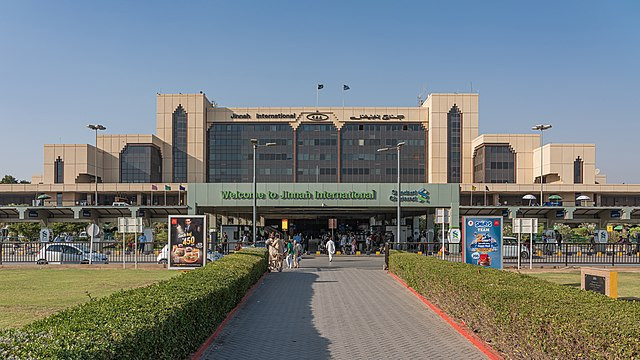In a grim escalation of violence against Chinese nationals in Pakistan, a suicide attack near Karachi's Jinnah International Airport claimed the lives of two Chinese citizens and injured at least eight others, including a third Chinese national. The attack, which occurred on Sunday evening, has been claimed by the Baloch Liberation Army (BLA), a separatist group notorious for its targeting of foreign investments and personnel in the region.
The blast, which set vehicles ablaze and sent plumes of smoke into the sky, was a direct strike on a convoy of Chinese engineers and investors leaving Pakistan's largest and busiest airport. The convoy included staff from the Port Qasim Electric Power Company, a coal-powered plant developed through a China-Pakistan joint venture. The attack comes just days before Pakistan is set to host a Shanghai Cooperation Organization (SCO) summit, raising questions about the country's security capabilities for protecting foreign nationals and dignitaries.
China's embassy in Pakistan confirmed the incident, expressing deep concern over the ongoing threats faced by its citizens working in the country. The embassy urged Pakistan to "take all necessary measures to protect the safety of Chinese citizens, institutions, and projects." China's Ministry of Foreign Affairs has yet to issue an official statement on the attack.
Balochistan liberation army #BLA claimed responsibility of last night blast near #KarachiAirport .Suicidal blast targeted vehicle carrying chinese engeneers killing 2 Chinese. BLA released photo of bomber. #KarachiBlast #Balochistan
पाकिस्तान के कराची एयरपोर्ट के पास बड़ा धमाका pic.twitter.com/FDxAmRFpbA — Hemant singh (@hemantazad777) October 7, 2024
The attack marks the latest in a series of violent incidents targeting Chinese personnel and projects in Pakistan, a critical link in China's ambitious Belt and Road Initiative (BRI). The BRI has led to the investment of tens of billions of dollars in the China-Pakistan Economic Corridor (CPEC), a project aimed at linking China's western Xinjiang region to Pakistan's Gwadar port on the Arabian Sea through a network of infrastructure developments.
Pakistan's Prime Minister Shehbaz Sharif condemned the attack in the strongest terms, calling the perpetrators "enemies of Pakistan" and vowing that they would face justice. "Pakistan stands committed to safeguarding our Chinese friends. We will leave no stone unturned to ensure their security and well-being," Sharif stated on X, formerly known as Twitter.
The BLA has long been active in Balochistan, a province in southwest Pakistan that has seen decades of insurgency as local separatist groups demand greater autonomy and control over the region's rich natural resources. The group has repeatedly targeted Chinese projects, accusing Beijing of exploiting Balochistan's resources without benefiting the local population.
This attack is a stark reminder of the dangers faced by foreign nationals, especially Chinese workers, who are seen as representatives of what some locals view as an unfair economic arrangement. The BLA, designated as a terrorist organization by both Pakistan and the United States, has increased its operations in recent years, launching high-profile assaults against security forces and Chinese interests.
Earlier this year, the BLA claimed responsibility for several attacks, including one at a Pakistani naval air base and another on a government complex outside the Chinese-funded port of Gwadar. The group's strategy appears aimed at destabilizing both Pakistan's internal security and its diplomatic ties with China. In March, five Chinese workers were killed in a similar attack when a suicide bomber targeted their convoy in northwest Pakistan.
The growing frequency of these attacks has heightened tensions between Islamabad and Beijing, as the safety of Chinese nationals becomes a persistent issue in the bilateral relationship. Chinese-funded projects in Pakistan, particularly in volatile regions like Balochistan, have often been met with resistance from local populations who feel marginalized and underrepresented in the benefits derived from these developments.
In response to Sunday's attack, Pakistan's Ministry of Foreign Affairs condemned the bombing as a "heinous terrorist attack" and extended its condolences to the families of the victims. Authorities have launched an investigation into how the bomber breached the security cordon in Karachi, a city that has been a frequent target of extremist violence.






